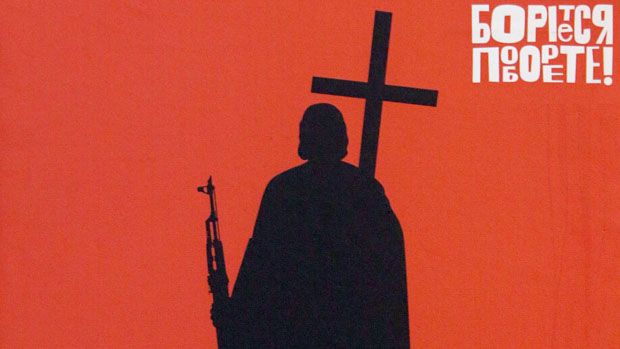History protects
The Ministry of Education’s decision that some of the humanities are no longer a required subject in universities raises a public outcry
Later last year Serhii Kvit, Minister for Education and Science of Ukraine, repealed Order No. 642 “On the Organization of Teaching Optional Liberal Arts Disciplines” of July 9, 2009, which set a list of compulsory liberal arts subjects for higher educational institutions. From now on, every university is free to decide which of the non-foundation subjects are to be compulsory or optional. Experts say this is a sign of universities’ autonomy and right to decide on the content of their curricula. Yet this news has triggered heated debates in society – especially the fact that history of Ukraine is now also a non-compulsory subject. It is at least surprising that some universities can drop this subject altogether under the pretext that it is not compulsory. This occurs at a time when society has at last begun to speak about the unlearned lessons of history and their role in the current situation in eastern Ukraine. Opinions differ.
WORSE THAN IGNORANCE?
Charles V, Holy Roman Emperor and, concurrently, King of Spain (1516-58), used to say in his inner circle: “Like any monarch, I naturally have stupid officials, but I am trying to do my best to have as few of them as possible, for otherwise the state will perish.”
Clearly, it was said crudely and “politically incorrectly.” But, indeed, you can often hear such reports in our fateful era that you willy-nilly recall this, by all accounts, quite a wise emperor. No chance for “political correctness!” Here is an illustrative example. The Ministry for Education of Ukraine has decided that higher educational institutions may discontinue teaching history if it is not a core subject. This is worthy of a comment.
It is not so easy to comment on this. Is it not obvious that the war, now underway (and is more and more fueled) in the east is, to a large extent, the result of the historical ignorance, blindness, and aggressive denationalization of a certain part of our society (not only in the Donbas)? A tragic war is in progress, but our patriotic post-Maidan Ministry of Education takes a decision that causes, to put it mildly, surprise and embarrassment. Do the ministry’s officials really not know that “infiltration” of an alien historical concept into societal awareness is a sure way to the demoralization and disorientation of society and, in the long run, to bloodshed? This is the “replacement” of society’s brain, and when a high-ranking governmental institution contributes to this, you cannot but ask: is this incompetence or a deliberate injury to the interests of the state? And it is not worthwhile to refer to the crisis and the war, for both things result, to a large extent, from similar decisions of the “predecessors.” Are we continuing their cause in 2015?
By Ihor SIUNDIUKOV, The Day
COMMENTARY
“WE ARE NOT CANCELING ANYTHING. WE ARE CHANGING ACCENTS AND INTRODUCING THE WESTERN SYSTEM OF TEACHING”
Serhii KVIT, Minister of Education and Science, Ukraine:
“There are several levels in this problem. Firstly, these socio-humanitarian disciplines have come to replace Marxism-Leninism. They were regarded as ideological from the very outset – people should be taught history, political science, philosophy, which means, of course, that there is some ideological sense in this. Secondly, we have adopted a law on higher education, which brings down teachers’ classroom workload from an annual 900 to 600 hours from the next year onwards. This means there will be essential changes in the educational process in line with Western universities. Students have their classroom load reduced and out-of-class work increased, while teachers will have more time for research. Students will also be free to choose a large number of subjects. If we are to reduce the load of teachers and students, there should be no compulsory disciplines in addition to the core subjects. This means that absolutely all the subjects should be optional unless they serve the graduation specialty. So, teachers and academic departments must work hard to advance their subject and make it interesting.
“This applies, above all, to technological and medical universities, where liberal arts and social disciplines are not core subjects. The big problem is that these disciplines are taught uninterestingly. When we teach would-be surgeons history or political science, they want to get rid of them as soon as possible because they are taught by the book. If universities enjoy autonomy, they should decide on their own what is primary and what is secondary for them. Our citizens see, first of all, an ideological component in this problem. I can understand this, but in the current conditions we are transferring the ideological component to the school level. Next year we are introducing a special curriculum of national patriotic upbringing. This will not be one subject only – the entire system of school education will be based on this curriculum. We are going to draw schoolchildren’s attention to national symbols, national history, and important events. But when a person becomes a student who is trained as physicist, engineer, or doctor, he or she should be offered a reasonable choice of additional subjects. So, we are not canceling anything. We are changing accents and introducing the Western system of teaching.”
Interviewed by Inna LYKHOVYD, The Day
Выпуск газеты №:
№4, (2015)Section
Day After Day





